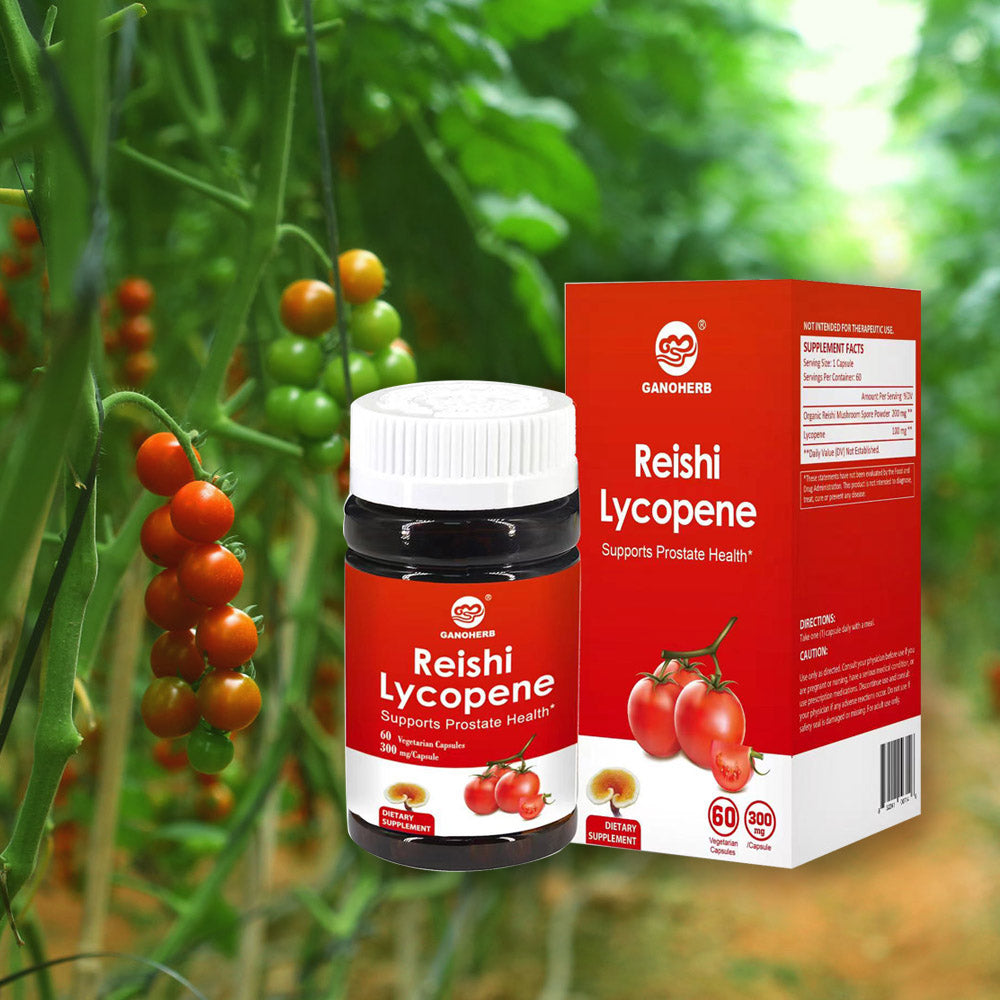Mushroom Lion's Mane Coffee: Key Aspects and How to Choose the Right Blend
In recent years, mushroom lion's mane coffee has gained attention as a unique beverage option that combines traditional coffee with the distinctive qualities of lion's mane mushroom. This blend offers a different take on daily rituals, appealing to those looking for variety in their drinks. Unlike standard coffee, mushroom lion's mane coffee integrates elements that provide a nuanced experience, from its preparation to its consumption. This article will delve into several facets of mushroom lion's mane coffee, covering its basic definition, ingredient breakdown, production methods, sensory qualities, and practical integration into daily life. By examining these areas, you can gain a clearer understanding of what sets mushroom lion's mane coffee apart and how to make informed choices when exploring this option. Whether you're curious about trying something new or seeking to expand your knowledge, this overview will provide valuable insights without overcomplicating the subject. Let's dive into the details of mushroom lion's mane coffee and see how it stacks up against other beverages in the market.

What Is Mushroom Lion's Mane Coffee?
Mushroom lion's mane coffee is a beverage that blends conventional coffee beans with extracts or powders derived from the lion's mane mushroom. This combination results in a drink that maintains the familiar aspects of coffee while introducing the unique characteristics of the mushroom. The lion's mane mushroom, known for its shaggy appearance resembling a lion's mane, is processed into a form that can be easily mixed with coffee grounds. Typically, mushroom lion's mane coffee is available in pre-packaged mixes or as separate components that users combine themselves. The idea behind this blend is to offer a different flavor and texture profile compared to plain coffee, making it a choice for those who enjoy experimenting with their drinks. Many people find that mushroom lion's mane coffee adds a layer of complexity to their usual routine, without drastically altering the core coffee experience. As such, it has become a popular item in specialty cafes and online stores, catering to a growing audience interested in unique culinary innovations. Understanding what mushroom lion's mane coffee is helps set the stage for appreciating its other aspects, such as how it's made and how it tastes.
Key Ingredients in Mushroom Lion's Mane Coffee
The primary components of mushroom lion's mane coffee include coffee beans and lion's mane mushroom extracts. Coffee beans used in these blends are often sourced from various regions, such as Latin America or Africa, and can be of different roast levels to suit preferences. The lion's mane mushroom is typically harvested and dried before being ground into a fine powder or processed into an extract. This mushroom component is what gives mushroom lion's mane coffee its distinctive name and qualities. In some formulations, additional ingredients like other mushroom types or natural flavorings might be included to enhance the blend, but the focus remains on the combination of coffee and lion's mane. The proportion of mushroom to coffee can vary between brands, affecting the overall character of the drink. For instance, some mixes might have a higher mushroom content, leading to a more pronounced earthy note, while others prioritize the coffee aspect for a balanced taste. When selecting mushroom lion's mane coffee, it's important to check the ingredient list to understand what you're consuming and ensure it aligns with your preferences. This attention to ingredients helps in appreciating the craftsmanship behind mushroom lion's mane coffee and its role in the broader landscape of blended beverages.
The Production Process of Mushroom Lion's Mane Coffee
The creation of mushroom lion's mane coffee involves several steps that start with sourcing raw materials and end with packaging the final product. First, coffee beans are selected and roasted to a specific degree, which can influence the flavor base of the blend. Simultaneously, lion's mane mushrooms are cultivated, harvested, and cleaned to remove any impurities. These mushrooms are then dried using methods like air-drying or low-heat dehydration to preserve their qualities. Once dried, they are ground into a powder or processed into a liquid extract, which is later combined with the roasted coffee grounds. The mixing process requires precision to ensure an even distribution of mushroom components throughout the coffee. Some producers use advanced techniques like spray-drying or freeze-drying to integrate the mushroom elements without compromising the coffee's integrity. After blending, the mushroom lion's mane coffee is packaged in airtight containers to maintain freshness and prevent moisture absorption. Quality control measures, such as taste tests and consistency checks, are often implemented to ensure each batch meets standards. This detailed production process highlights the care involved in making mushroom lion's mane coffee a reliable and enjoyable product for consumers.
Flavor and Aroma Characteristics of Mushroom Lion's Mane Coffee
Mushroom lion's mane coffee offers a distinct sensory experience that sets it apart from traditional coffee. The flavor profile typically includes the rich, robust notes of coffee, complemented by earthy, slightly sweet undertones from the lion's mane mushroom. Depending on the roast of the coffee beans, you might detect hints of chocolate, nuts, or fruit, which blend seamlessly with the mushroom's mild, umami-like qualities. The aroma of mushroom lion's mane coffee is often described as warm and inviting, with a subtle woodsy scent that adds depth to the overall olfactory experience. When brewed, the drink may have a smoother mouthfeel compared to plain coffee, thanks to the mushroom components that can reduce bitterness. Tasting notes can vary based on the preparation method—for example, using a French press might accentuate the mushroom's texture, while espresso-based versions could highlight the coffee's intensity. Overall, the flavor and aroma of mushroom lion's mane coffee provide a unique twist that appeals to those seeking something beyond ordinary coffee, making it a conversation starter in social settings or a personal treat for quiet moments.

How to Incorporate Mushroom Lion's Mane Coffee into Daily Routines
Integrating mushroom lion's mane coffee into your daily life can be a straightforward process that adds variety to your beverage choices. Start by substituting your regular coffee with mushroom lion's mane coffee during morning rituals, as its familiar caffeine content can provide a similar wake-up effect while introducing new flavors. You can prepare it using standard coffee-making equipment, such as drip machines, pour-over setups, or even instant mixes for convenience. Experiment with different brewing times and temperatures to find the balance that suits your taste—for instance, a longer steep might enhance the mushroom notes. Mushroom lion's mane coffee also pairs well with common additions like milk, cream, or sweeteners, allowing for customization based on personal preferences. Beyond morning drinks, consider using mushroom lion's mane coffee in recipes like baked goods or smoothies to incorporate its unique qualities into snacks or meals. When shopping, look for reputable brands that offer clear instructions on usage to ensure a consistent experience. By making mushroom lion's mane coffee a part of your routine, you can explore its versatility and enjoy the subtle shifts it brings to your day without major adjustments.
Comparing Mushroom Lion's Mane Coffee with Other Coffee Blends
When evaluating mushroom lion's mane coffee against other coffee blends, several differences become apparent. Traditional coffee focuses solely on the beans, offering a range of flavors from light to dark roasts, whereas mushroom lion's mane coffee introduces an additional layer from the mushroom, which can modify the taste and texture. For example, compared to flavored coffees that use syrups or spices, mushroom lion's mane coffee tends to have a more natural, integrated profile without artificial additives. In contrast to decaffeinated options, mushroom lion's mane coffee typically retains caffeine, making it similar in stimulation but distinct in composition. Another point of comparison is with specialty blends like those incorporating chicory or adaptogens; mushroom lion's mane coffee stands out due to its specific mushroom component, which may appeal to those interested in botanical ingredients. Price-wise, mushroom lion's mane coffee can be slightly higher than standard coffee due to the extra processing involved, but it often falls within a reasonable range for specialty beverages. By understanding these comparisons, consumers can better assess where mushroom lion's mane coffee fits into their preferences and whether it aligns with their taste and lifestyle choices.
FAQs About Mushroom Lion's Mane Coffee
Q1: What is the typical price range for mushroom lion's mane coffee?
A1: The cost of mushroom lion's mane coffee varies based on factors like brand, quality, and packaging size. Generally, prices can range from $15 to $30 per bag or container, with organic or premium versions potentially costing more. It's advisable to compare options online or in stores to find a product that fits your budget.
Q2: How should I store mushroom lion's mane coffee to maintain its quality?
A2: To preserve the freshness of mushroom lion's mane coffee, store it in a cool, dry place away from direct sunlight. Airtight containers are recommended to prevent exposure to moisture and air, which can affect the flavor and shelf life. Proper storage can help maintain the desired qualities for several months.
Q3: Can I make mushroom lion's mane coffee at home without pre-made mixes?
A3: Yes, you can create mushroom lion's mane coffee at home by combining freshly brewed coffee with lion's mane mushroom powder or extract, which is sold separately. Start with a small amount of mushroom component and adjust to taste, ensuring it blends well with your preferred coffee brewing method.
Q4: Are there any common allergens in mushroom lion's mane coffee?
A4: Mushroom lion's mane coffee typically contains coffee and lion's mane mushroom, which are not common allergens. However, always check the product label for any additional ingredients that might include allergens like soy or dairy, especially in flavored varieties, to ensure it meets your dietary needs.
Q5: What is the best way to brew mushroom lion's mane coffee for optimal flavor?
A5: For the best flavor, brew mushroom lion's mane coffee using methods that allow full extraction, such as a French press or pour-over. Use water just below boiling point and steep for about 4-5 minutes to balance the coffee and mushroom notes. Experiment with ratios to find your ideal taste profile.











